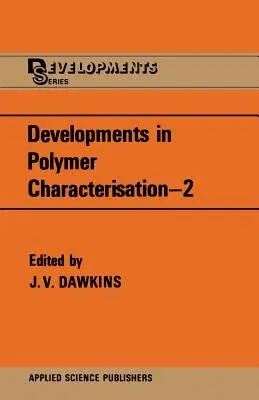The policy adopted in Volume 1 of this series of including a relatively
small number of topics for detailed review has been continued here. The
techniques selected have received considerable attention in recent
years. F or this reason and because of the significance of the
characterisation data, further coverage of 13C nuclear magnetic
resonance spectroscopy and small angle neutron scattering is given in
the first two chapters. In Chapter I a large part of the review
describes the determination of monomer sequence distributions and
configurational sequences in copolymers formed from more than one
polymerisable monomer. The review on neutron scattering (Chapter 2) is
directed towards the determination of the chain conformation in
semi-crystaIIine polymers, which has provided important results for the
interpretation of chain folding and morphology in crystaIIisable
polymers. Laser Raman spectroscopy has also been used for morphological
studies, and this application together with a description of the
theoretical and experimental aspects of the technique is given in
Chapter 3. X-ray photoelectron spectroscopy because of its extreme
sensitivity to surface characteristics has provided information on
polymeric solids that could not be obtained by other techniques. The
principles and practice of this ESCA technique, including its use for
simple elemental analysis, structural elucidation and depth profiling,
are described in Chapter 4. The final two chapters are mainly concerned
with the chain conformation of polymers in dilute solution. Ultrasonic
techniques (Chapter 5) show pmmise for observing the dynamics of
conformational changes.


